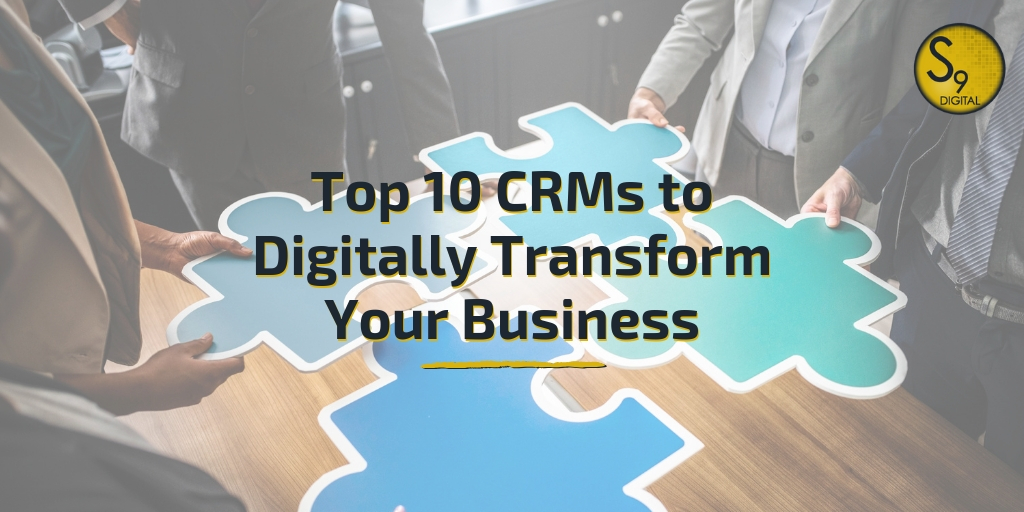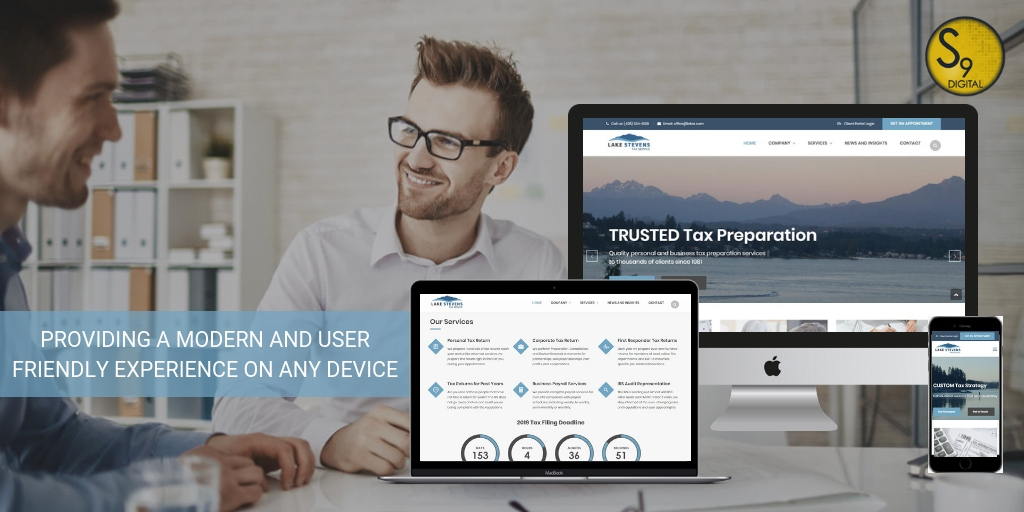Digital transformation can be a terrifying prospect for many small businesses. The thought of incorporating new technologies that you and your employees aren’t familiar or comfortable with all aspects of your business can provoke stress or even panic. However, small businesses have a big edge on large, non-agile corporations.
Making the digital jump as a smaller business is like learning a language when you are a child: you are able to get fluent fast! The big, multinationals have a worse time of it with the cost of implementation, the cultural changes required and getting a strategy in place.
Here is how small businesses have an edge during Digital Transformation:
Smaller changes at a lower cost
You have the luxury of implementing smaller changes with bigger impacts that you can build upon in the future.
It might seem basic, but going paperless is a common first step for many small businesses wanting to take advantage of new technologies. This small thing makes a big difference when you want to integrate data, update records, and reference materials at the drop of a hat.
This past year I implemented this switch for a small (less than 5 employees) service business. In just 3 years, they had accumulated thousands of paper documents. Each of which needed to be scanned and organized in the cloud. Once completed, it not only freed up valuable floor space that was previously occupied by filing cabinets but also made document search and retrieval a trivial task.
Try to imagine doing this with decades worth of documents, some of which are handwritten by past employees. It’s easy to see why at this point the costs are much more prohibitive. Fortunately for small businesses, the solution is simple and easily incorporated into a larger digital transformation process. And while it may seem like a large pain in the ass to get going, there are a number of tools to make this process a lot less time consuming.
Small teams already work for a common goal
Digital transformation is not just a technological change, it is a cultural shift. One of the first things you need to do before starting the transition is to get everyone on board. Not just your IT people either (here’s a secret: you don’t even need an IT team for digital transformation!). Anyway, bringing your whole team into your strategy early will prevent any major growing pains in the future because you are already aligned.
By taking the concerns of existing employees into account when setting out your initial strategy, you can ensure that all future hires will also benefit from increased productivity and collaborative work habits. It might seem like a painful process. But compared to a large company with hundreds or even thousands of employees to retrain, small businesses have it easy.
Simplifying or automating routine tasks will free up your employees. Therefore, allow them to focus on tasks that have the potential to boost revenue or reduce costs. This will ultimately improve workplace morale. New tools, such as Slack or Workspace by Facebook can also allow your employees to work remotely. They also can help you take advantage of the growing freelance economy. If you are a one-man army, digital transformation can eliminate the need to fill many positions in the first place.
There’s no need to deal with legacy software
Another pitfall small businesses can avoid is having to maintain or replace legacy software. Large companies spend big money maintaining software. Simply because it would be too costly or difficult to switch to something better. It might have worked well when it was developed 20 or 30 years ago. But after decades of tweaking and patching to keep up with changes in the business, they can actually become a hindrance to employee productivity.
Coming out well before modern UI and UX improvements, legacy software is notoriously difficult to use. This contributed to an average cost-per-hire of over $4,000 in 2016. Even after training and years of experience, most legacy software dates to well before the mobile revolution. Given it can only be used from office computers, that’s is simply unacceptable in today’s work environments.
As a small company, if you do your research and choose the right option early, you can set yourself up for big savings in the future. You can benefit from decades of improvements without the cost of developing any software yourself.
You’ll establish your digital identity with room to grow
Small businesses might fear the size of big companies and the prices they can offer. However, what customers really want in today’s world is personalized experiences. In fact, they demand it! A recent study found that 71% of consumers feel frustrated when their shopping experiences aren’t personalized.
By attempting to provide a better shopping experience, small businesses can set themselves up to truly compete with companies of any size. That same study found that 49% of consumers were persuaded to buy items they had not intended to buy. This was after receiving a personalized recommendation from a brand.
Omnichannel Customer Experience
Setting up omnichannel experiences will improve customer perception of your brand, and help drive sales up. The problem here is that you cannot possibly do omnichannel without the right IT infrastructure. If you want to someday scale your business, the sooner you get started, the better.
There is no one size fits all omnichannel solution. Yes, many of the current success stories are big companies with huge budgets. However, if you are able to build an ideal experience on a single platform, it will be much easier to expand that to other platforms in the future.
On a similar note, having more control over these experiences will also allow you to see what works. It can be dangerous for large companies to experiment with their core products. However, smaller companies can be much agiler and pivot if need be. It’s much easier to know when and how to pivot if you have mountains of data to aid in the decision.
Delaying digital transformation is no longer an option. The good news is that as a small or medium-sized business you have several advantages over huge, multinational corporations. Regardless of your specific industry, the benefits of digital transformation are clear. It might be painful temporarily, but it will only get worse the longer you wait.
Watch YOUR Vision Come to Life
Based in Seattle, WA and working with clients across the globe, S9 Digital believes that digital is something you are, not something you do. We promise to leave our clients more nimble, more resilient, and more digital than we found them. At S9 Digital, we don’t sell one-size-fits-all products. We honestly and systematically build digital capabilities and platforms that foster authentic, impactful connections with the people and systems that matter most.
If you are interested in a digital transformation of your company or organization, then please contact us to set up your FREE Consultation!









You must be logged in to post a comment.